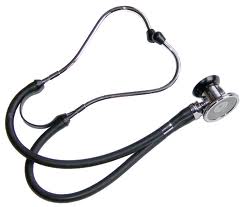by Manisha Thakor

Can focusing on your health help you to pay less in taxes? If your employer offers a healthcare flexible spending account (“FSA”) and you elect to participate, the answer is yes!
Toward the end of the year I am frequently asked about ways to lower minimize the burden of taxes. That’s a logical query. After all, it’s not what you earn that puts food on your table, but what you get to keep after Uncle Sam takes his cut.
When it comes to tax breaks most people think of the mortgage interest deduction and charitable contributions. Those are certainly common and valuable ones. However, often overlooked health care FSAs have the ability to get you a tax break of up to 40 percent on many of your routine health-related expenses.
How does this work? Healthcare FSAs (as well as also valuable dependent care and commuter accounts) allow you to cover eligible expenses with money that is taken out of your paycheck before taxes. That means every penny of each dollar you earn is available to spend on eligible health care expenses. Nothing is put aside for Uncle Sam.
While the most common covered expenses include co-pays, prescription drugs and dental and vision care, here are the top 5 items you likely didn’t know were covered with a health care FSA:
-
Acupuncture treatments – Therapies such as acupuncture, chiropractor and even doctor-recommended massage can be very beneficial but may not be covered by insurance. An FSA can help you to pay and save on these costly treatments.
-
Doctor-ordered weight loss programs – Maintaining a healthy weight is an important part of your overall health, yet two-thirds of adults in the US are overweight. If weight loss is a goal for you and your doctor recommends that you join a weight-loss program, you can use your FSA to pay the enrollment and other fees.
-
Gluten free food items – If someone in your family has Celiac’s Disease or a gluten allergy, you can be reimbursed for some of the cost of gluten-free food items. Whenever you purchase a gluten-free food item, compare the cost to a similar item with gluten. The price difference can be covered with your FSA.
-
Mileage to/from medical appointments Any trips you make to your doctor’s office, the pharmacy or other areas where you receive medical care can be reimbursed at 19 cents per mile.
-
Smoking cessation programs – According to the American Cancer Society, more than half of all smokers have attempted to quit in the past year. A cessation program may be what you need to quit for good, and you can pay for it tax-free if you use your FSA.
As open enrollment season begins to wrap up, so does your window for signing up for a health care FSA. Keep in mind that while individual employers currently set the limit on how much can be put aside in an FSA, starting in 2013 the federal government will cap employee contributions at $2,500 per year. Given this, you may want to put aside a larger amount this year if you are interested in getting LASIK or other more costly procedures in 2012.
To learn more about pre-tax benefits, like health care FSAs, invest a little time on a site like savesmartspendhealthy.com or ask about it at work. You may be shocked to realize that you could be saving up to 40 percent on many of your routine health care, dependent care and commuting expenses.
In the end, signing up for a health care FSA can make a lot sense for you and your family. Saving more and paying less in taxes while simultaneously taking care of your health is a surefire prescription for increased happiness!
[For more MoneyZen in your life, follow Manisha on Twitter at @ManishaThakor, on Facebook at /MThakor, or visit MoneyZen.com.]


